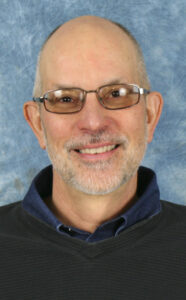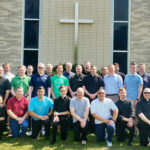By Dan Ebener
In his YouTube presentation, “Saving a Dying, Shrinking Church,” Father Casey Cole describes the slow erosion of the church as a social institution. In this context, he says, people no longer attend church out of obligation but only “because they want to come.” So, how did this slow erosion occur, and what social forces have replaced the role that religion played in society?

If we were to go back 200, 100 or even 60 years ago, and weigh the strength that these five social institutions had on U.S. culture, how would you rank them? (1) Religion, (2) family, (3) government, (4) education and (5) business. Sociologists teach us that these are the five most influential institutions in most societies. Together, they determine what we value, how we behave and why we are here.
Having asked this question of many groups over the past 20 years, I would suggest the order that most people would rank them is just like above: (1) religion, (2) family, (3) government, (4) education and (5) business. In the past, the role of religion in society was so influential that it had a huge impact on the other four.
Family was a close second, and often indistinguishable from religion. Religion established the norms, values and beliefs of your family and society. However, your family determined your religion and created the space to learn about religion. They were inseparable.
As Father Cole points out, there was a time when religion — not government — determined the law of the land. The framers of the U.S. Constitution saw the role of religion as so important that they insisted on the separation of church and state — not to keep the church out of the affairs of government but to keep government out of the affairs of the church!
Religion and family provided your education and/or determined what school you attended and what subjects you studied. Education was intricately tied to studying religion and philosophy. It was not about preparing you for a career or to run a business.
Family determined what business you entered. If your family farmed, you were a farmer. If they ran a store, you inherited the store. Religious and family values drove business decisions. Stores would not even think about opening on the Sabbath.
Today, the order of these five institutions, in terms of their impact on U.S. culture, has essentially reversed. Religion and family are now on the bottom. Business considerations drive almost everything. Churches, schools and the government are told to be run like a business. Pastors, principals and elected officials are also expected to be business managers.
Business values such as individualism, competition and consumerism have become core to the U.S. culture. We value effectiveness over faithfulness and productivity over spirituality. Schools prepare students to participate in the U.S. economy. The church’s message has become countercultural. To paraphrase the U.S. Conference of Catholic Bishops’ statement on the economy, we expect people to serve the economy, not the other way around.
Business considerations drive government decisions. People vote their pocketbooks. Elected officials “bring home the bacon.” They are judged by the performance of the stock market, the job market and other measures of the economy. Business dictates what government funds, values and decides.
There are many more examples of this. Most people reading this probably wish we could go back to the original order. As the role of religion and the family have weakened, and as the role of business has flourished, the questions to ponder: What has this done to the quality of life in America? How can we lead change to reverse these trends?
(Dan Ebener is director of planning for the Diocese of Davenport.)
Support The Catholic Messenger’s mission to inform, educate and inspire the faithful of the Diocese of Davenport – and beyond! Subscribe to the print and/or e-edition, or make a one-time donation, today!











